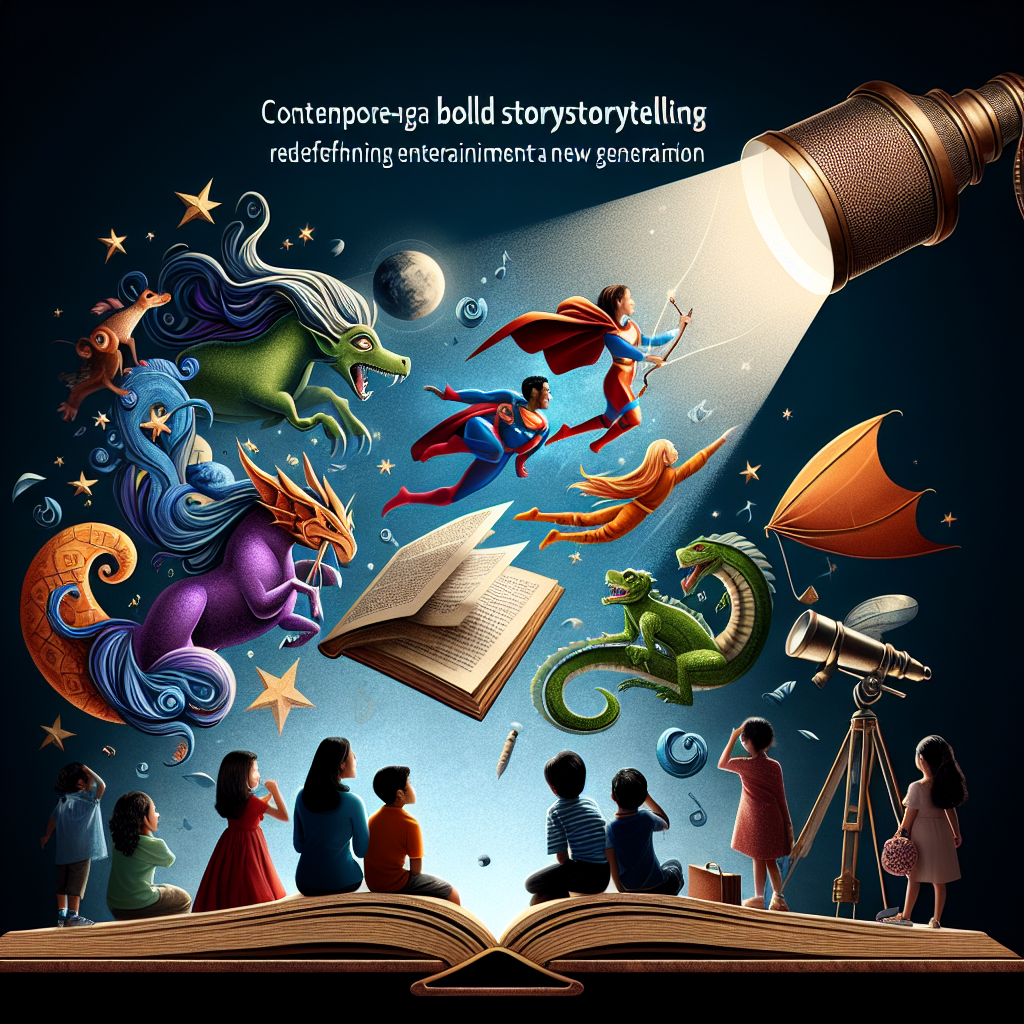Disney's Bold New Era: How 'Woke' Storytelling Is Redefining Family Entertainment for a New Generation
Over the past few years, Disney has embarked on a transformative journey that has sparked conversations and debates across the entertainment landscape. This shift, often referred to as "woke" storytelling, embraces themes of diversity, inclusion, and social awareness, aiming to resonate with a modern audience. While some critics view this evolution as a departure from traditional storytelling, many fans herald it as a necessary step for contemporary family entertainment. In this article, we’ll explore how Disney’s new narrative approach is redefining what it means to be a family-friendly entertainment powerhouse.
A New Lens on Storytelling
Disney has long been synonymous with enchanting tales and timeless characters, but the past few years have seen the company embrace a broader spectrum of narratives. This "woke" storytelling manifests itself in various ways, from reimagined classic films to original content that champions underrepresented voices. Take, for example, Disney's live-action adaptations of animated classics. Projects like "Mulan" and "The Little Mermaid" have sought not only to entertain but also to provide cultural context and representation, acknowledging the diverse backgrounds of their source material.
In "Mulan," the filmmakers opted for a more authentic portrayal that aligned with Chinese culture, moving away from the problematic elements of the original animated film. Similarly, the casting of Halle Bailey as Ariel in "The Little Mermaid" sparked both excitement and controversy, highlighting how Disney is willing to challenge traditional notions of race and identity in its storytelling. Such decisions reflect a conscious effort to create narratives that are more reflective of the society we live in, thereby making the stories feel more relevant to today’s families.
Inclusive Characters and Diverse Narratives
One of the most significant aspects of Disney's shift towards "woke" storytelling is its commitment to creating inclusive characters. This move is evident in animated series and films like "Frozen," which features strong female leads, and "Soul," that explores themes of race, identity, and purpose through the lens of a Black protagonist. These narratives not only entertain but also educate young audiences about empathy, acceptance, and the importance of diversity.
Moreover, Disney has expanded its representation beyond just race and gender. LGBTQ+ representation has steadily increased, with characters like LeFou in the live-action "Beauty and the Beast" and the inclusion of a same-sex relationship in the animated series "The Owl House." By showcasing a variety of identities and experiences, Disney is not just keeping pace with societal changes; it's leading the charge in promoting acceptance and understanding in family entertainment.
Critics and Supporters: A Divided Audience
As with any major shift, Disney's move towards "woke" storytelling has elicited a range of responses from audiences and critics alike. Supporters argue that these changes are not just timely but essential, as they reflect a more inclusive society that values representation. Many parents appreciate the opportunity to introduce their children to multifaceted characters who reflect the real world, fostering important conversations about diversity and acceptance at home.
On the flip side, detractors often claim that this new direction compromises creativity and quality. Some argue that the emphasis on political correctness can overshadow storytelling, leading to narratives that feel forced or insincere. However, it’s important to recognize that storytelling has always evolved to reflect cultural values and societal norms. The challenge for Disney is to strike a balance between innovating its narratives while maintaining the magic and wonder that has defined its brand for generations.
The Future of Family Entertainment
As we look ahead, it’s clear that Disney’s "woke" storytelling is not a fleeting trend but rather a pivotal moment in the evolution of family entertainment. The company is investing in new projects that prioritize authentic voices and narratives, signaling a long-term commitment to inclusivity. Upcoming titles, like the live-action adaptation of "Pinocchio," are expected to incorporate contemporary themes, further expanding the boundaries of what family entertainment can be.
This new era also presents an opportunity for collaboration. Disney's partnerships with diverse creators and storytellers are likely to result in rich, varied content that captures the imagination of audiences worldwide. By embracing a wider range of perspectives, Disney is not only redefining its own legacy but also setting a precedent for other studios to follow suit. In doing so, the company is ensuring that family entertainment remains relevant and resonates with future generations.
At the end of the day, the evolution towards "woke" storytelling at Disney may be contentious, but it also holds great promise. As the company navigates this new landscape, one thing is clear: storytelling is a powerful tool for change, and Disney is embracing its role in shaping a more inclusive future for family entertainment.

No comments yet. Be the first to comment!